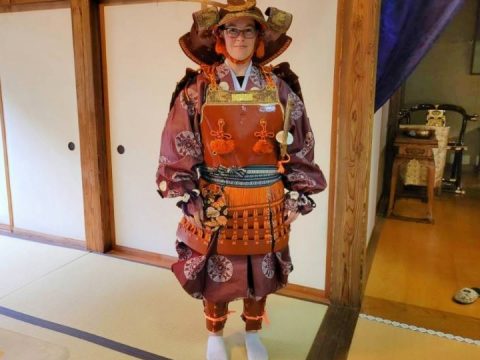Types of paid holidays in corporate Japan
WORK’IN JAPAN
25.11.2022
There’s an image that Japanese office workers work all the time with no time off, but when looking at public and paid holidays, it can be pretty generous. All workers are entitled to paid leaves annually depending on their employment status and years of employment.

Public holidays
Japan has sixteen public holidays every year. Some fall on Mondays, creating consecutive holidays combined with the weekend. This, of course, is separate from paid leaves.
Paid leave
How much paid leave or yukyu (有給) you receive is calculated based on your employment status (full or part-time) and how many years you have been working for the company. After the six-month probation period, the number of paid leave days increases but caps after 6.5 years. All permanent and contract employees are entitled to ten days of paid leave per year.

Maternity/Paternity/childcare leave
The right to take maternity leave is protected under Japanese law and available for all working mothers, regardless of their status. Mothers and fathers are also protected against unfair treatment by their employers for requesting or taking maternity or childcare leave.
Mothers can take pre/postnatal leave (産前産後休業) from six weeks before their due date (14 weeks for multiple births) and eight weeks after the birth date.
Fathers can take paternity leave (産後パパ育休・出生時育児休業) immediately after birth until the child turns one year old.
Childcare leave (育休・育児休業) starts right after maternity leave ends. Parents can extend it up to two years if they cannot enroll their child in daycare.
Nursing care leave
Employees with family members are eligible for this leave (介護休業). This leave allows employees time to care for their sick or elderly family members. Employees are entitled to 5 days of leave per year.
Menstrual leave
Menstrual leave (生理休暇) grants the rights of female employees who are experiencing or struggling with extreme menstrual pains to rest. However, this leave is not well known. Less than 1% of companies report using it because many female employees say they prefer not to disclose private information to their employers (2019-2020 data).

Congratulatory leave
In the case of weddings and births, you are entitled to some leave (慶弔休暇). In the case of your wedding, you can take up to five days, or two days for your siblings or own child. If your wife gives birth, you can take 1-5 days’ leave.
Bereavement Leave
Full-time employees are granted several numbers of days for bereavement leave (忌引休暇), which depends on the employee’s relationship with the deceased.
For example, if the loss of a spouse, you can take 7-10 days of leave and 5-7 days for parents or your child.

Substitute holiday
If you work on a weekend or holiday for work, like for an event, you can ask to take a different day off (代休).
Your company may offer special leaves in addition to the ones mentioned above. When you’re job hunting, you should check the many company benefits offered and if the employees properly take the days off.

Kayoko Hirata Paku
Kayoko Hirata Paku is a food writer, translator, and bagel person. Growing up in Japan and the U.S., she currently resides in Tokyo with her peanut butter addicted husband, a very hungry baby, and many half-dead plants.
Read previous articles by the writer
Read latest articles
KEYWORDS
- # PICKPICK
- # Resume
- # alcohol
- # Rice
- # Soup
- # winter food
- # Fast Food
- # seafood
- # spicy foods
- # raw food
- # fermented food
- # Transportation
- # MEAT
- # Edo culture
- # suits
- # clothing
- # drink
- # fish
- # seasoning
- # Japanese New Years Foods
- # Toshikoshi soba
- # Osechi Ryori
- # Ozoni
- # Christmas
- # Japanese fusion pasta
- # Wafu Pasta
- # Japanese Hot Pot
- # なべ
- # 鍋
- # Miyazaki
- # Chicken Nanban
- # Karamen
- # Autumn Wagashi
- # Mushi-yokan
- # Imo-yokan
- # Japanese Autumn Fruits
- # Autumn
- # Vending Machine
- # fall
- # dango
- # Chestnut rice
- # saury
- # Mushroom
- # Rice vinegar
- # Japanese condiments
- # 調味料
- # Sake
- # Mirin
- # Soy sauce
- # Japanese Noodles
- # Udon
- # Ramen
- # Yakisoba
- # Soba
- # Japanese Seaweed
- # 海藻
- # かいそう
- # Payslip
- # Training
- # Japanese summer foods
- # 和菓子
- # Wagashi
- # ryokucha
- # 夏
- # 飲み物
- # Ramune
- # ラムネ
- # Pokari Sweat
- # ポカリスエット
- # Calpis
- # カルピス
- # Mugicha
- # ume
- # 梅
- # うめ
- # umeshu
- # job hunting
- # tofu
- # Recruitment in Japan
- # miso
- # Japanese cuisine
- # Yellowtail and bonito
- # Children’s Day
- # Kashiwa Mochi
- # Chimaki
- # fruits
- # Kusamochi
- # Types of Agriculture in Japan
- # bread
- # パン
- # パン屋さん
- # japanese bread
- # shokupan
- # meal blead
- # anko bread
- # 桜
- # さくら
- # cherry blossom
- # visa
- # hanami
- # omotenashi
- # sakura
- # おもてなし
- # Japanese hospitality
- # oshibori
- # wet hand towel
- # hand towel
- # restaurant
- # Commuting in Japan
- # Women-only cars
- # Exit gate
- # japanese train
- # train
- # valentine
- # Japanese sweets
- # 朝食
- # Japanese Breakfast
- # Breakfast
- # Japanese
- # 日本
- # healthy
- # persimmons
- # hoshigaki
- # HR
- # work in Japan
- # jinji ido
- # corporate systems
- # Japanese work culture
- # bento
- # ekiben
- # shinkansen
- # omiyage
- # train station
- # Japanese culture
- # work culture
- # mentaiko
- # umeboshi
- # Japanese snacks
- # potato chips
- # Japanese potato chips
- # Japanese writing
- # seaweed
- # konbu
- # ocean foods
- # shio konbu
- # dashi
- # miso soup
- # food processing
- # pear
- # nashi
- # sweet potato
- # japanese sweet potato
- # stingray
- # satsuma imo
- # food value chain
- # homecooking
- # agriculture
- # Japanese homecooking
- # farming
- # nikujaga
- # shojin ryori
- # meat and potatoes
- # traditional foods
- # comfort food
- # buddhist food
- # manufacturing
- # factory
- # eihire
- # vegetarian
- # food and beverage
- # izakaya
- # yatai
- # japanese festival
- # taiyaki
- # matsuri
- # summer
- # Ikayaki
- # smart agriculture
- # shaved ice
- # kakigori
- # かき氷
- # summer dessert
- # Japan
- # Japanese foods
- # dessert
- # fruit
- # matcha
- # icecream
- # Pikcup
- # Pikc up
- # Pcikup
- # skilled labor visa
- # working visa japan
- # Dineer Table in Japan
- # Japanese manner
- # Japanese food
- # Japanese Table Manner
- # Chopsticks
- # Japanese traffic signs
- # traffic information
- # road rules in Japan
- # chocolate
- # green tea
- # Osaka
- # Work Japan
- # Japanese company
- # ikura
- # sushi
- # nigiri
- # wasabi
- # PCIK
- # PICK UP
- # PICK
- # PICKUP








